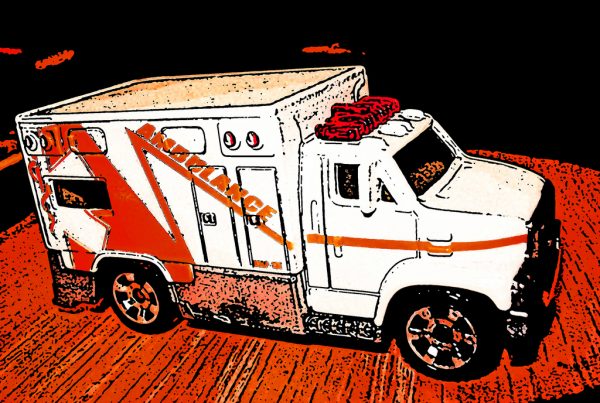Non-emergency medical transportation (NEMT) is a vital service. The government cares about it enough to regulate it heavily and there are thousands of businesses involved in providing it. An industry like this is sure to generate some interesting news. The stakes are not negligible, people’s lives and livelihoods depend on NEMT and so when things happen, it is best to pay attention. In December 2015, there have been stories of spectacular fraud, government intervention, and radical policy changes across the country; anyone with some skin in the NEMT game would be well served to pay attention.
Guam, a U.S. island territory in the Western Pacific, has a medical transportation company called Guam Medical Transport (GMT) and they are in trouble with the law. On January 5th two employees pleaded guilty in federal court to charges of conspiracy to commit medicaid fraud, to the tune of $30 million dollars. The court claims “the defendants submitted and caused to be submitted claims to Medicare and TriCare that were materially false.” It is important to remember to not try to steal from the government, they hate competition, and it generally does not pay. It is even more important to keep detailed, properly formatted records of all transports when they are paid for by government money. And these records should probably be kept in secure, digital format; not your attic or crawlspace, like one unorganized company in Ohio. This can be easily done with the right software.
Louisiana has audited its medical transportation system and they are not happy. A recent audit has found that $1.6 million dollars worth of medical transportation rides had no corresponding medicaid claim on the day of transportation. This is the seventh time state auditors have found evidence of improprieties. Regulators can’t crack down because many of the businesses where these discrepancies were found are in rural locations and are the only sources of transportation for people with serious medical conditions. Starting in December 2015 Louisiana’s medical transportation program will be managed by five new companies. With new management and furious bureaucrats it looks like an uncertain 2016 in the bayous.
 Rhode Island’s Public Transit Authority (RIPTA) can’t handle a surge in demand after LogistiCare took over the state’s non-emergency medical transport system. RIPTA has been providing free transportation to the state’s elderly and disabled, in 2014 RIPTA provided 5.4 million free rides and this number is skyrocketing as more people turn to the agency. Providing NEMT for profit, through LogistiCare, is a reasonable decision. It controls fraud and brings the state into step with the most recent federal regulations. But it does drive people who are unable to pay for necessary transport into the unready arms of overwhelmed not-for-profit services like RIPTA. For now the Rhode Island legislators are taking the easy way out. Rather than trying to increase RIPTA finding, which is posting a $9.4 million dollar loss, they are simply changing the rules, allowing it to stop providing free rides. Perhaps RIPTA should find a way to efficiently deal with increased demand.
Rhode Island’s Public Transit Authority (RIPTA) can’t handle a surge in demand after LogistiCare took over the state’s non-emergency medical transport system. RIPTA has been providing free transportation to the state’s elderly and disabled, in 2014 RIPTA provided 5.4 million free rides and this number is skyrocketing as more people turn to the agency. Providing NEMT for profit, through LogistiCare, is a reasonable decision. It controls fraud and brings the state into step with the most recent federal regulations. But it does drive people who are unable to pay for necessary transport into the unready arms of overwhelmed not-for-profit services like RIPTA. For now the Rhode Island legislators are taking the easy way out. Rather than trying to increase RIPTA finding, which is posting a $9.4 million dollar loss, they are simply changing the rules, allowing it to stop providing free rides. Perhaps RIPTA should find a way to efficiently deal with increased demand.
The reason fraud happens and the reason why organizations like RIPTA are struggling originates from the same source. The NEMT industry is underdeveloped. It can be much more efficient. Little things can be done like having all your billing go through a secure online platform, so mistakes do not get made and no one goes to jail. Or using dispatching software to efficiently route and multi load your vehicles so you can cut costs.
That has been the news for December of 2015, there is plenty to look forward to in the new year. People transportation keeps changing as governments and businesses respond to the market, technology, popular outcries and (sometimes fraudulent) actions by individuals. My only recommendation is to get on top of the technology before it is too late. The business of moving people is dynamic in both day to day operations and long term strategy. If you are not changing and flexible on both time scales you will be left behind by the relentless forward march into the future. For help on avoiding that, contact us at info@pantonium.com or leave a comment below.
Top photo: sameliaz8|Flickr
Center Photo: Got Credit|gotcredit.com




